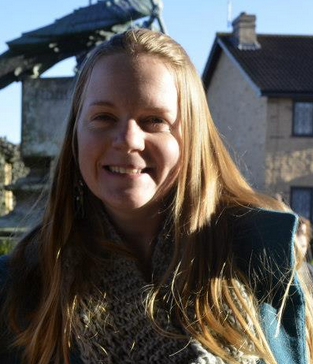
Tamzin Furtado
Specialist Team
I am a social scientist with a specific interest in the One Health: the interconnections between human, animal and environmental health. With a background in global health, I completed a PhD at the University of Liverpool studying human behaviour change in relation to obesity in horses, particularly focusing on horse-human relationships. I now work on projects covering a wide range of aspects involving understanding human behaviour in order to improve environmental health and animal welfare, and in using social sciences to find out more about how we can help people to change. I am particularly interested in understanding the social and environmental systems that contribute to human behaviour.
A Chat with Tamzin
Tell us a little bit about you and your journey into behaviour change?
Having worked in human global health for the first part of my career, I had a great interest in the power of communities of practice and social change – but I didn’t discover the wonder of behaviour change science properly until I started my PhD in animal welfare at the University of Liverpool. Although I’d transitioned from human welfare to animal welfare, it quickly became apparent that it was more important for me to understand the people than the animals – without focusing on what made the people tick, I’d never be able to help them to change their behaviour to improve the lives of the animals. My PhD studied one of the biggest welfare issues for UK equines; obesity. As a result of studying this from a human behaviour change perspective, we put in place initiatives such as creating a supportive decision making tool for owners to work out how to make changes for their horses, and “healthiest body condition” awards across UK shows.
Why does the science of behaviour change matter?
We have so much work to do in relation to improving the way we live, environmentally speaking, and understanding our attitudes and behaviour is at the heart of that. Behaviour change research is inspiring, applicable to so many settings, and can bring about real-life change.
What is the most inspiring behaviour change intervention you have come across and why?
One of my favourite behaviour change interventions is the HENRY project, which provides parenting support in Leeds (https://www.henry.org.uk/). This programme recognised that common child health problems such as obesity and dental problems could stem from parenting challenges, and set up an amazingly supportive programme for parents in this low socioeconomic area. Leeds is now one of the only areas of the UK where child obesity is actually declining, and HENRY is one of the interventions thought to have been relevant in making this change.
What’s your vision for behaviour change for the next five years?
Lots of organisations are now realising that behaviour change science is a useful thing, but there’s still some concern and confusion about how to apply it in practice, and it’s still sometimes an afterthought or “fringe science”, particularly in the One Health arena. I hope that behaviour change will become central to thinking about these challenges – and I also hope that we can find practical ways to monitor and evaluate initiatives for every project.
Why do you like working with HBCL?
It’s so inspiring to be working with people who are so passionate and knowledgeable about their topics, and who can truly find ways to bring about the changes we all want to see. I enjoy the opportunity of working in an interdisciplinary team, and the flexible, dynamic approach to projects.
Top tip for individuals or organisations getting started with behaviour change?
Don’t be afraid of models of change! People often seem to think models are a bit too complicated, but actually they can help us to think about behaviours in a much more holistic way, and thus find ways to bring about change.
I am excited to work with HBCL, because I am passionate about the impact we can have by applying the science of human behaviour change. I love the innovative, flexible and evidence-based approach HBCL applies to projects, and enjoy working as part of HBCL's inter-disciplinary teams, in which each member brings their own unique experience and skills.
